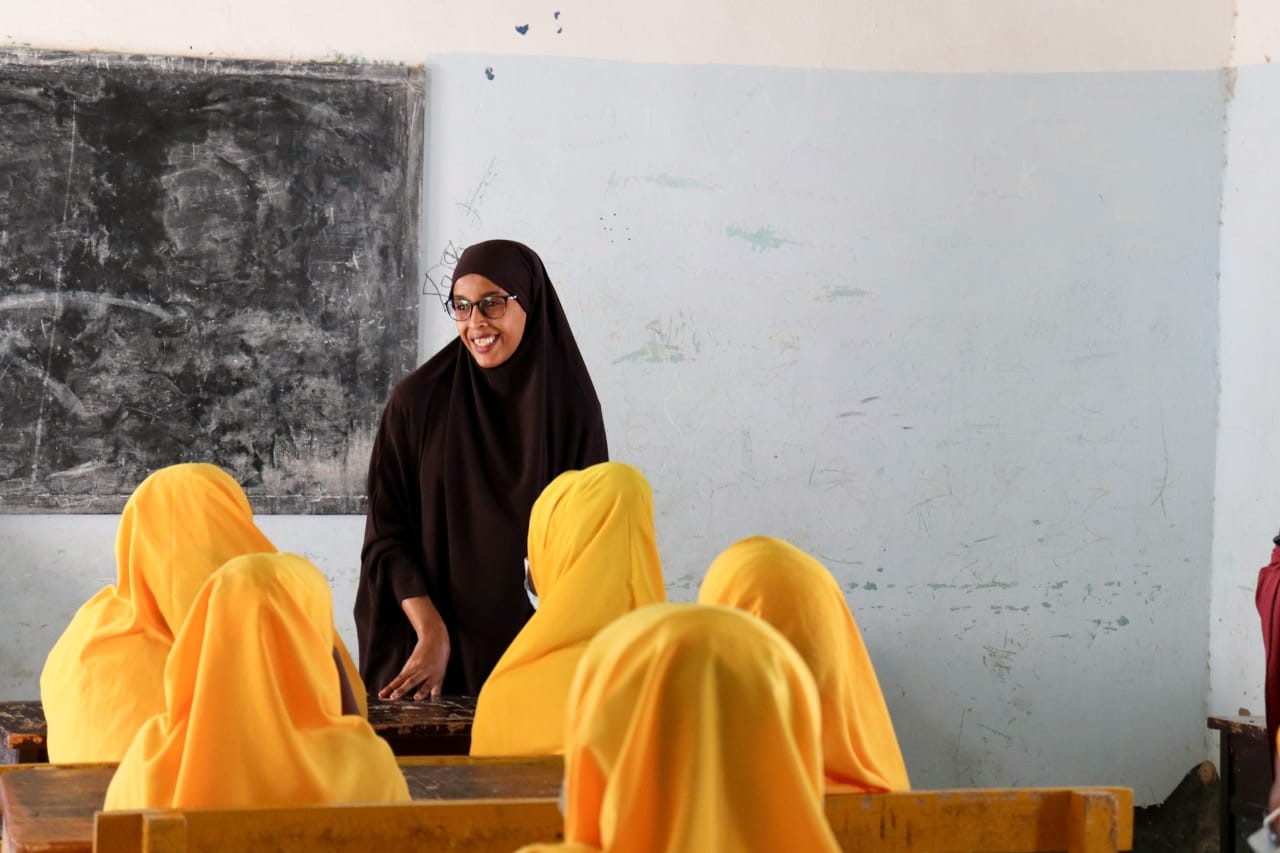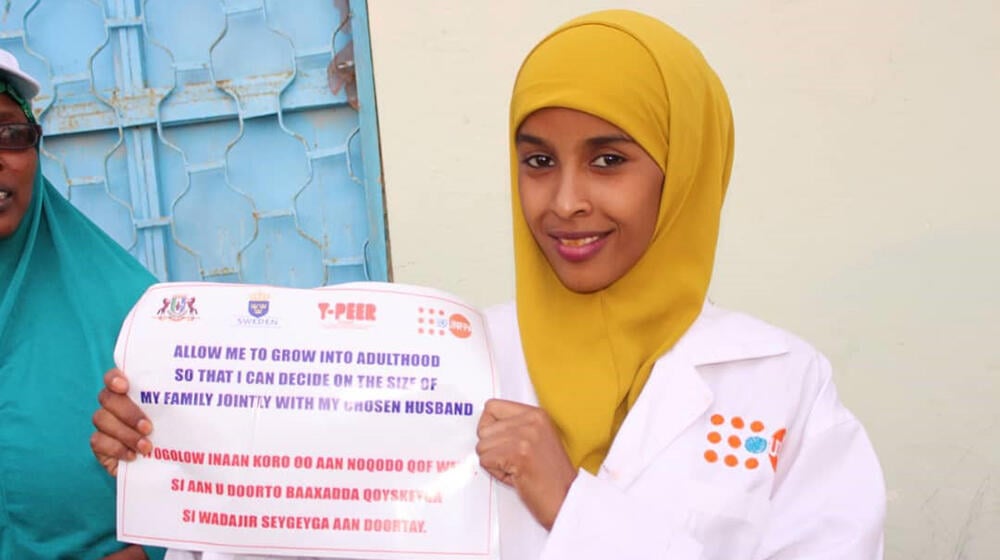Farhiya is a hard-working young woman. Since 2018, she works at Y-PEER Puntland as a clinic officer, peer educator, Sexual and Reproductive Health and Rights (SRHR) advocate and consultant, providing services to survivors of Gender-Based Violence (GBV).
“I started working for Y-PEER in 2018. When I count the years it seems long, but when I see how much I have managed to accomplish for my community, I also feel like time flew by.”
As a fresh graduate from East Africa University with a Bachelor’s degree in Clinical Medicine, Farhiya joined the Y-PEER Puntland team. Her ambition was to use her knowledge to better her community.
“I have always been interested in giving back to my community. I have a passion for helping others. I want to have a positive impact on my surroundings and I try to go above and beyond to provide information about people's rights”, she explains.
“As a clinic officer, I received a very similar education as medical doctors. This is necessary since I carry out many tasks that are usually performed by doctors, including medical and surgical procedures, such as anesthesia, diagnosing various diseases, treating medical conditions, and prescribing medications”, says Farhiya.
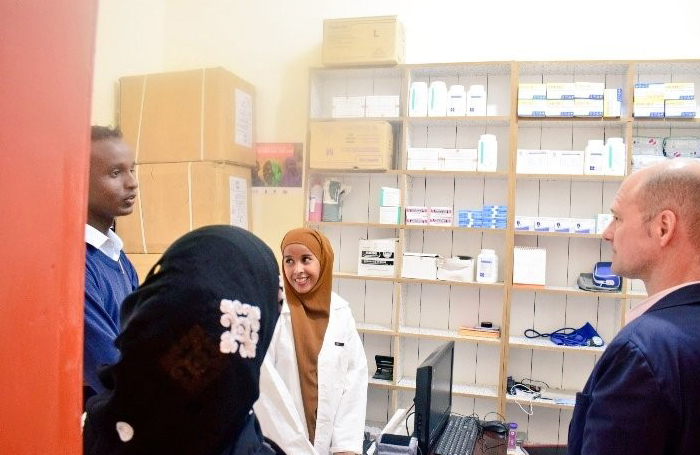
The most rewarding part of her job, Farhiya says, is “helping people that are in dire need, people who are denied their basic rights and are unaware of it. When I can help those people, this is probably one of the best parts of my job”, she explains.
However, working as a clinical officer is not always easy. The most difficult part of her job, Farhiya continues, is that “as a Somali community we are very conservative people. Talking about certain topics is very taboo, and may even be dangerous. Sometimes, talking about normal health-related subjects, such as reproductive health and rights or certain harmful practices, such as female genital mutilation, could get you in trouble with your community”, she explains.
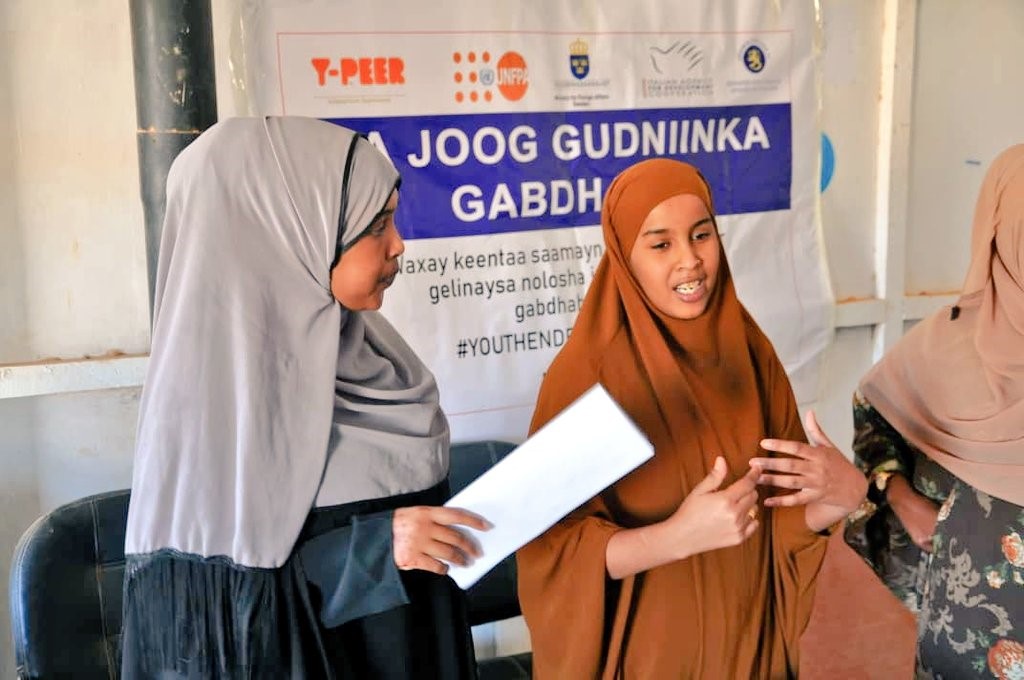
Nevertheless, she does not let that stop her. Having a positive impact on people’s lives has been the main priority for Farhiya during her time at Y-PEER Puntland. Her dedication has been substantial to all the people she has supported. “I remember in 2020, after the first wave of COVID-19, a survivor of domestic abuse came to Tilmaame iHub. She was reluctant to meet with a consultant, but when she did, she met me and I made sure she received psychosocial support and connected her to the right places. Now, thankfully, she is living a better life”.
A typical day at work for Farhiya includes meeting people from all parts of life with different cases and stories. “You never know who you will meet or help tomorrow”, she says.
“Usually, I come to the Tilmaame center at 08:00 AM and I go directly the youth clinic that provides basic health services and consultation. The majority of our visitors are young people, mainly girls, who come for sanitary kits, diagnoses, consultation or SHRH education. On certain days, we carry out awareness sessions on harmful practices, such as child and early marriage, as well as GBV, HIV, menstrual hygiene and SRHR”, she continues.
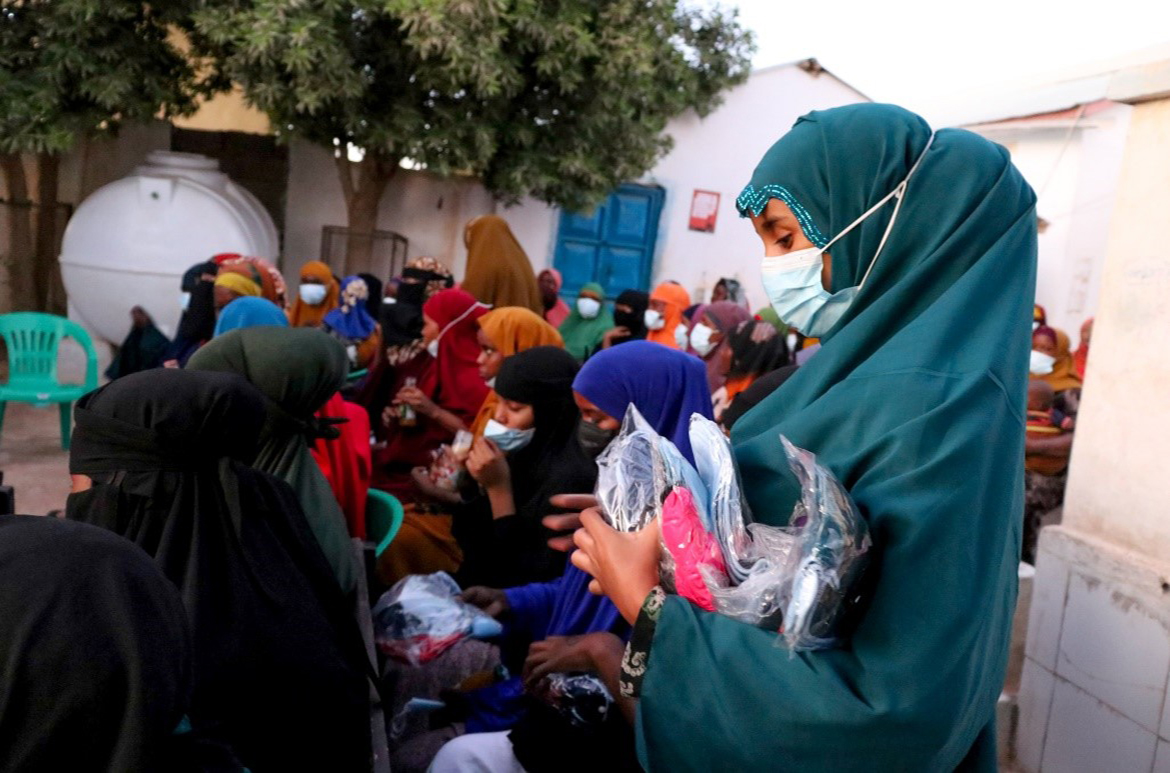
Just like many other humanitarian workers, Farhiya faced multiple challenges in her work, and since the COVID-19 pandemic reached Somalia, the challenges have been unprecedented. “As people, we are programmed to usually run from challenges, to avoid them at any cost, but I personally believe challenges are a huge motivation to do better. You need to work hard to overcome those challenges, to deal with them and to control them”.
“I would like to think that I am doing a good job in my community. I have helped people learn about and understand their sexual and reproductive rights. Despite facing multiple challenges, I have consulted and offered the support and services needed to GBV survivors and I have great colleagues with whom I share the common goal of wanting to positively impact our community”, she concludes.
